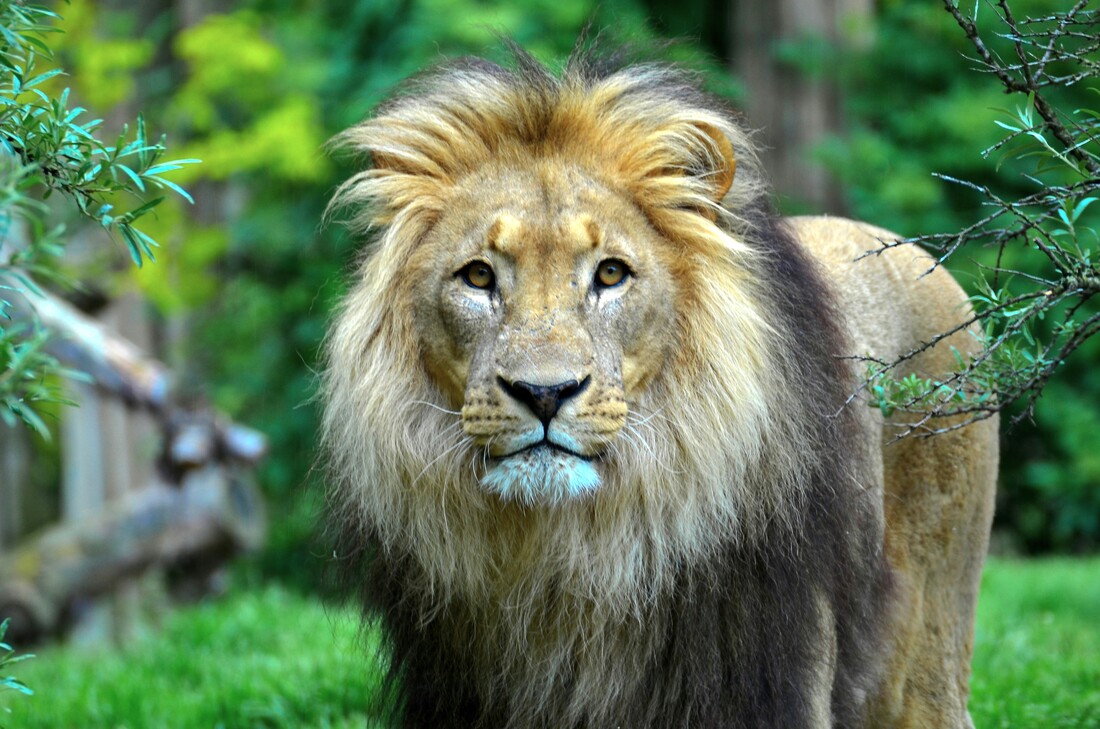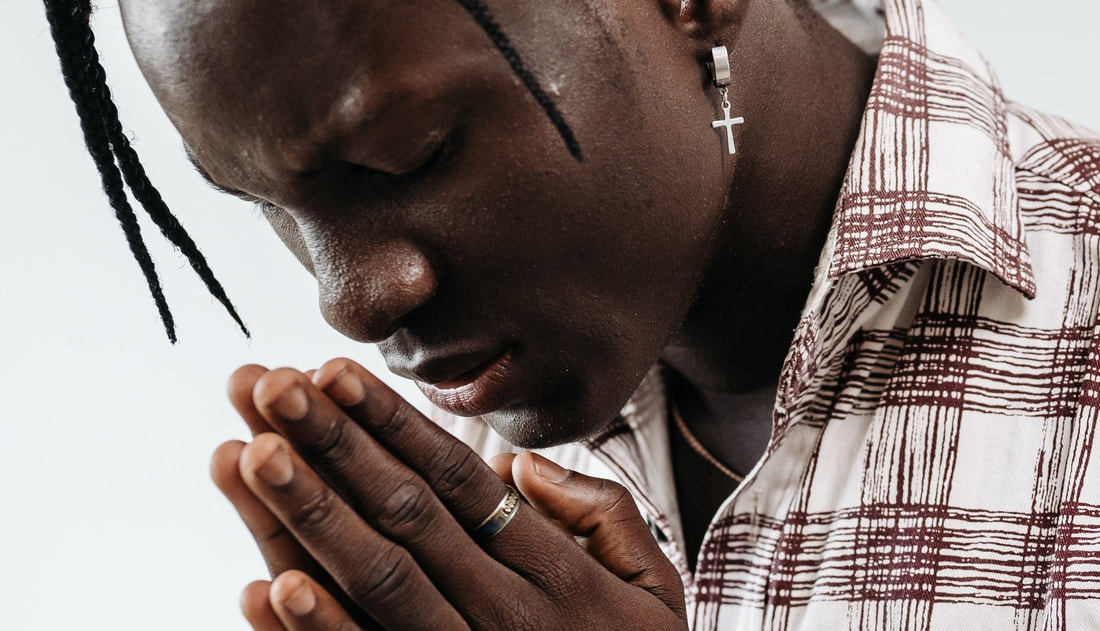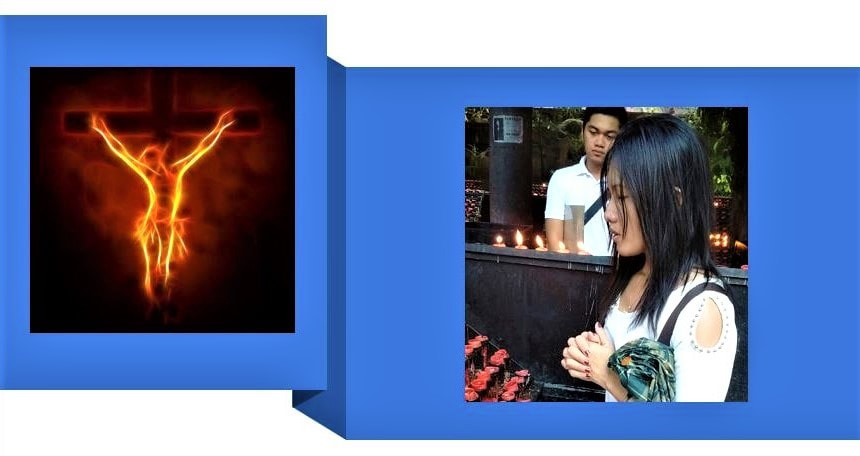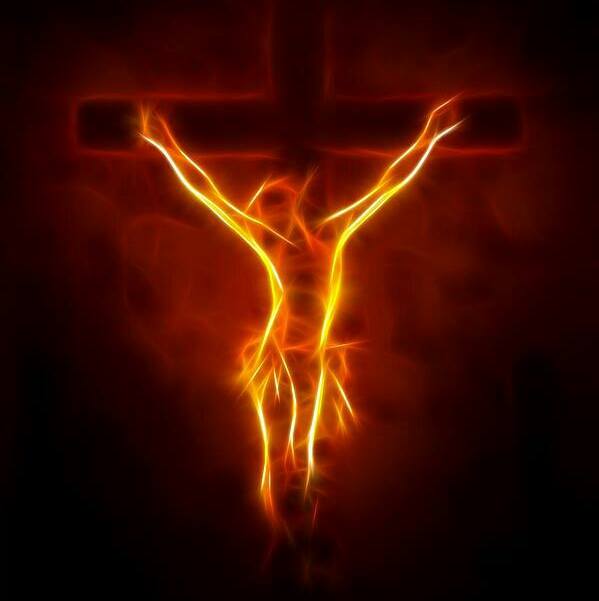|
‘Is he – safe? I shall feel rather nervous about meeting a lion.’ ‘Safe? Who said anything about safe? Of course he isn’t safe. But he is good.’ (C.S. Lewis: The Lion, the Witch and the Wardrobe) I was 8 years old when the teacher asked us, a classroom of children, to sit on the floor while she read to us the next chapter of a novel, ‘The Lion, the Witch and the Wardrobe’. If you know the book, it was the part where Aslan the lion (which, I discovered later, the author had used to depict Jesus) appears in Narnia, a mythical world that represents this world. It's a beginning of real hope. This snow-covered land, which hitherto had been trapped under a curse of perpetual winter, is beginning to thaw. Meanwhile, the antagonist, an evil witch (depicting Satan), comes across a small group of woodland creatures enjoying a party to celebrate. She flies into a rage, interrogates them harshly and uses her magic powers to turn them into stone. At that awful and unexpected moment, I remember bursting into tears. As a child, I was horrified that, just as things had started to look up for these innocent animals, their lives and hopes had been shattered. It felt like a moment of despair for them – and for me. (A therapist-supervisor commented recently that little wonder most of my subsequent adult life has been spent in community work, human rights and international development). Today as I, along with Christians across the world, reflect on Jesus’ death on the cross, I’m reminded again of terrible injustice and violence against the innocent. I often identify more with Edmund than with Peter in Lewis' drama, yet what matters most is Aslan. It's He who breaks the power of the witch.
10 Comments
'The one thing we owe absolutely to God is never to be afraid of anything.' (Charles de Foucauld) I once heard a psychotherapist say that she always pays special attention to the final words a client says, often as they are touching the door handle and about to leave. It’s where a client may reveal the core of an issue, perhaps because they feel safe to do so now that they are leaving, or sometimes because a new insight emerges just as they approach the boundary that the doorway represents. A close friend’s father had fought with the German Wehrmacht on the Eastern front in World War 2. He was a young man at the time and, along with his peers, had taken part in terrible atrocities. As he approached that final boundary, the end of his life, he felt deep despair over what he had done and a terror of meeting God. I met with him, an Engländer. We hugged and cried. Now he could die in peace. This feels very poignant to me as we approach Easter. Jesus Christ’s final words, ‘It is finished’, hold special meaning for me. I spoke with an EMDR therapist recently about a painful boundary, a traumatic experience, that I went through as a teenager. It was a brutal ending. My life was finished. Yet Jesus, Saviour, found me there. It is finished. That life was finished. Resurrection: a new life began. ‘Those who hope in Christ can no longer put up with reality as it is but begin to suffer under it and to oppose it. Because I believe in eternal life, I shall be active for the life of the people. Because I hope in the resurrection, I shall take part in the revolt of the people against all deadly oppressive powers.’ (Jürgen Moltmann) It was tough living under martial law. Her father and neighbours were working hard in the fields during harvest time. As evening approached, without realising it, they were out slightly later than was allowed under the imposed curfew. When soldiers appeared, the farmers didn’t expect to have their hands and feet tied or to be wrongly accused of insurgency. Her father, now badly beaten and blooded, was dragged home to his wooden hut and thrown down a bank. She was only 5 years old at the time and, witnessing this horror, in desperation picked up a stone and threw it at one of the soldiers. He pulled out a gun, held it to her head and said, ‘I could kill you.’ Only the intervention of another soldier saved her: ‘Leave her. She’s a child.’ As I listened to this simple yet harrowing account, I could only imagine how this incident, this trauma, could have impacted on this young girl’s life. Certainly, as an adult, it has influenced her passion and stance against injustice, particularly violence in whatever form – whether physical via war, social-psychological via exclusion or insidious via corruption – against the poorest and most vulnerable people. Some years later, her uncle, a leader in a remote village, opposed the unethical practices of a powerful business and paid for it with his life. She too was hunted by a death squad for challenging a corrupt government official in front of the media. Only after he too was murdered, could she and her family return safely to their home. It's a world that terrifies me. I don’t know if I could find the courage to stand firm on my beliefs and values in such circumstances. I’m afraid that I would shrink back, try to protect myself – and find ways to justify it. Later in her childhood years, this girl met Mother Teresa of Calcutta who placed her hands on her head and prayed for her. I do wonder if something profoundly spiritual happened in that moment. She throws her life on Jesus – for others, in love – relentlessly and at significant personal cost. When I appeal to her to keep safe, she cautions me to beware of being too safe: ‘If you cling to your life, you will lose it; but if you give up your life for Jesus, you will find it.’ Jesus is her hard-edged hope. She takes him at his word. I struggle for words at Easter. How can I speak? It’s about horrific pain…and incredible hope. An intense emotional, physical roller coaster that evades articulation, defies human language. It’s a place of stretched imagination, strained to its most bewildering, unfathomable limits.
And, today, I worked with a Christian organisation, Open Doors. I arrived during a vivid presentation about conflict in South Sudan. The images were harsh and hard and yet, in the midst of such suffering, they held strange glimmers of light, of hope. I just can’t make sense of it. So I’m reminded of Christ who presences himself – Person of Jesus, God with us – and Easter’s stark reminder of the risk, the cost, of presence and contact. It’s an existential, spiritual challenge that feels so completely beyond me and yet, paradoxically, the deepest place that I find hope. Easter is a good time to reflect on dying to an old life and rising to a new one. If what I believe is true, the cross reveals in the starkest terms possible that no matter who we are or what we have done, we really matter to God.
Imagine over 2 billion people. It’s enough to make me feel dizzy, roughly a third of the world’s total population, Christians all over the globe marking a very significant event this weekend. Easter. But what does Easter mean for Christians? Why is it so important? How is it different to a colourful, pagan, fertility festival marked by chocolate, rabbits and eggs?
At the heart of the Christian Easter is a cross, a symbol used by Christians to highlight the centre-point of their faith. The cross is a reminder of Jesus Christ, the Son of God, crucified on a cross 2,000 years ago. It’s a shocking symbol, an instrument of Roman torture and agonising death. It draws our attention to a God-man-saviour, prepared to give his life for us. That’s where it gets hard. What if the biblical account is true? Can I dare myself to believe it? What if Jesus really was the Son of God? Could he really love someone as messed up as me? I can only draw one conclusion. If this story is true, the cross cries out in the starkest possible terms that no matter who we are or what we have done, we really matter to God. And there is more hope. Easter Sunday marks an equally remarkable event. This Jesus who died is raised by God. Miraculously, he is brought back to life and, what is more, promises us life over death by trusting in him. He offers us light, life and hope in the midst and beyond the dark deaths and despair we may face in life, psychological, emotional and physical. So that’s where I place my faith. Not in my weak and inconsistent efforts to be a good person, a clever person, an interesting or adventurous person. I know what I’m really like inside. Amazingly, God is never disillusioned with me because he never had any illusions in the first place. I place my faith in Jesus. If the Bible is true, he truly deserves my life. |
Nick WrightI'm a psychological coach, trainer and OD consultant. Curious to discover how can I help you? Get in touch! Like what you read? Simply enter your email address below to receive regular blog updates!
|







 RSS Feed
RSS Feed